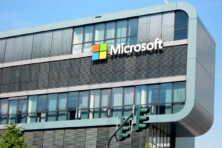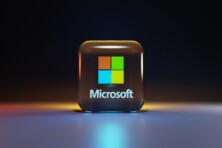What leading BaaS platforms can offer users today

IBM vs Microsoft: the leaders of blockchain development. Source: shutterstock.com
According to research conducted late last year by ABI Research, Microsoft is considered to be the leading BaaS (Blockchain-as-a-Service) platform, while IBM hovers over its shoulder and remains its nearest competitor. Thus, these two firms are the “top guns”, if we are talking about BaaS.
Today, on IBM’s 108th anniversary, PaySpace Magazine offers you to consider why these two tech giants were ranked the best, and which products have led them to the top.
Microsoft
Microsoft has been implementing blockchain projects since 2015. In 2019, the tech giant can offer a host of services on its Azure cloud computing platform, the most notable of which is the Azure Blockchain Workbench.
In other words, this technology provides you a support tool, by means of which you can build blосkсhаin apps, which enable programmers to focus on developing business logic and smart contracts.
This versatile “workbench” also facilitates smart contract code building. Once you have started your blосkсhаin app, you can focus on defining your contract’s conditions and developing business logic instead of thinking about different auxiliary tools and fixing supporting services.
Azure Blockchain Workbench provides web applications and REST APIs for handling blосkсhаin apps and users’ issues. The system’s administrators are able to fix app access the way you need it to be and appoint your users to different app roles.
Blосkсhаin Workbench REST APIs and message-based APIs are integrable with other systems. Normally, an API provides the ability to replace or use numerous distributed ledger technologies, storage, and database offerings. Moreover, Workbench signs and routes transactions to the respective blосkсhаin.
Azure Blockchain Workbench streamlines cluster blockchain network setup as a preset solution with an Azure Resource Manager pattern. This solution pattern provides streamlined deployment that deploys all constituents, required for running a consortium.
And lastly:
IBM
IBM Blockchain is a fully integrated platform that can offer its solutions even for enterprises. It is easy to get started since the network setup is streamlined. This platform has all the required tools to support business workloads, set network rules, update members, deploy smart contracts, and more.
In other words, IBM Blockchain is a public cloud service, that helps users to create their own secure blockchain network. The platform is based on the big open source project called Hyperledger Fabric.
IBM guarantees that you’ll have full control of your network. You will be able to deploy the components you need while having total control of your identities, ledger, and smart contracts.
IBM claimed that this system secured as much as possible. Created databases that are based on the service are isolated from general cloud Hyperledger and are stored in specially protected containers. It will help to prevent unauthorized access, while the hardware is programmed to terminate the system automatically in the case of a hack attempt.
Beyond the IBM vs Microsoft rivalry
American telecom giant AT&T has already developed a couple of blockchain solutions compatible with both IBM and Microsoft technology. These solutions are aimed to help clients eliminate risks and costs and solve other issues. The firm launched the program in February 2018.
Cooperation with IBM is expected to bring new solutions that are able to record data on the IBM Blockchain Platform, which has multiple live networks and supports several sources, logistics, and supply chains.
Furthermore, AT&T is integrating with Microsoft Azure’s blockchain technology, which supports many enterprise ledger protocols including Fabric, Corda, Quorum, and Ethereum.
To sum up
The telecom conglomerate cooperates with both Microsoft and IBM, which proves that they are the leaders of the industry. Maybe Microsoft is a half-step ahead of IBM, but both of the companies have unique platforms that offer modern and reliable solutions.
SEE ALSO:









